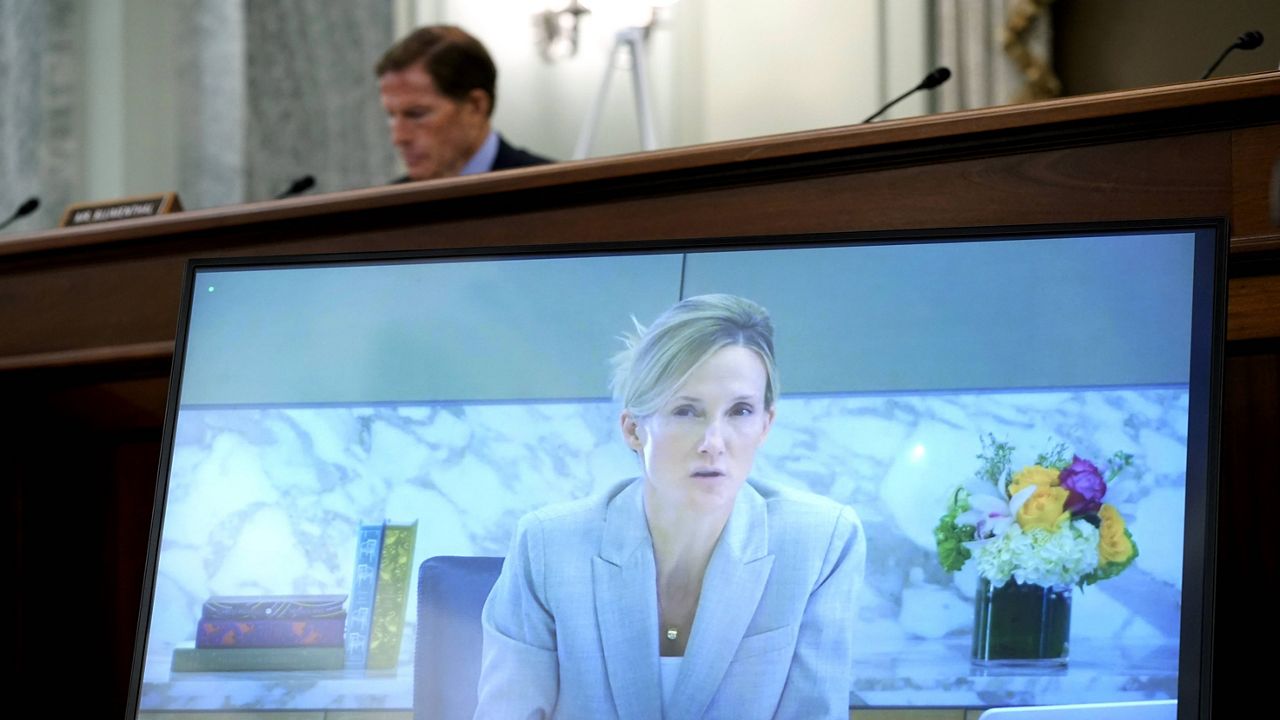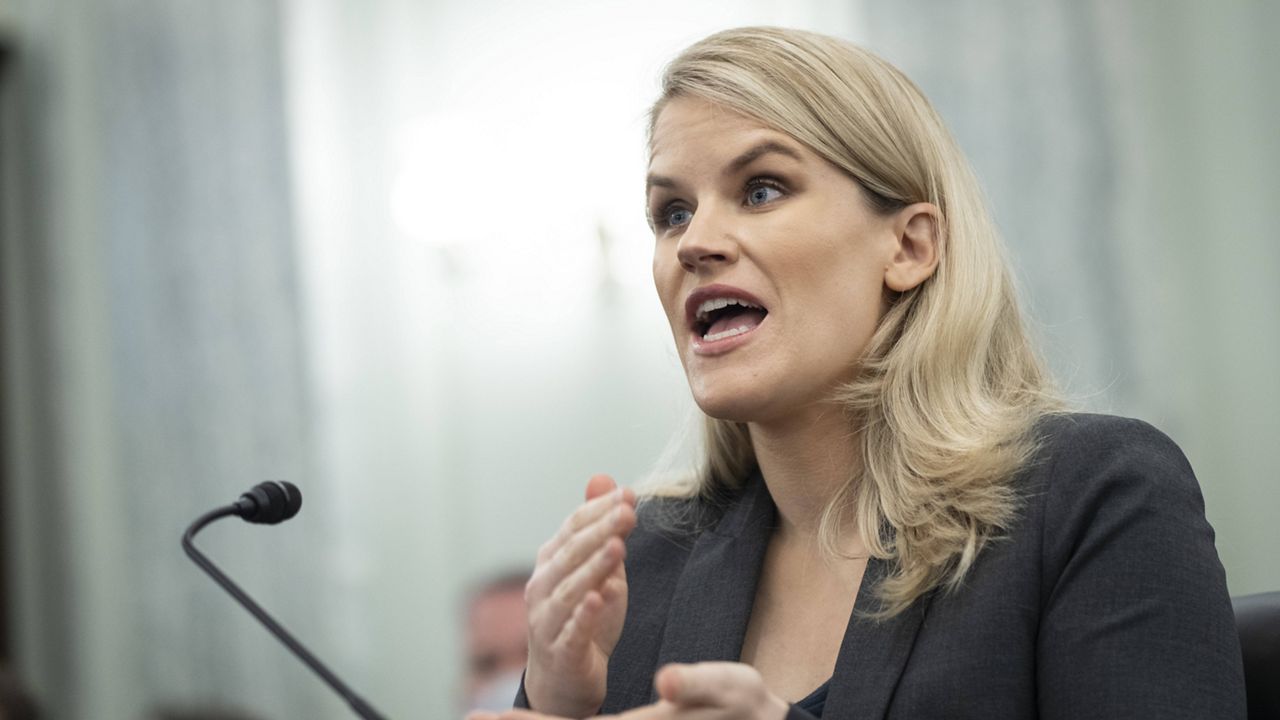Lawmakers grilled a Facebook executive Thursday following a series of Wall Street Journal articles that revealed the company learned from internal research that its Instagram photo-sharing app can be harmful to teens, especially girls, and publicly downplayed its negative impact.
What You Need To Know
- Lawmakers grilled a Facebook executive Thursday following a series of Wall Street Journal articles that revealed the company learned from internal research that its Instagram photo-sharing app can be harmful to teens, especially girls, and publicly downplayed its negative impact
- The research from 2020 and earlier this year was leaked to the newspaper by a whistleblower at Facebook -- the analysis found that the app caused mental-health and body-image problems for some young people, as well as eating disorders and suicidal thoughts
- At a Senate hearing, lawmakers from both sides of the aisle united in attacking Facebook over the findings, as the social media giant’s head of global safety, Antigone Davis, tried to change the narrative about the research
The research from 2020 and earlier this year was leaked to the newspaper by a whistleblower at Facebook. The analysis found that the app caused mental-health and body-image problems for some young people, as well as eating disorders and suicidal thoughts.
At a hearing for the Senate Subcommittee on Consumer Protection, Product Safety and Data Security, lawmakers from both sides of the aisle united in attacking Facebook over the findings, as the social media giant’s head of global safety, Antigone Davis, tried to change the narrative about the research.
“Facebook has shown us, once again, that it is incapable of holding itself accountable,” said Sen. Richard Blumenhal, D-Conn., the subcommittee’s chairman.
“We now have deep insight into Facebook's relentless campaign to recruit and exploit young users,” he continued. “We now know while Facebook publicly denies that Instagram is deeply harmful for teens, privately Facebook researchers and experts have been ringing the alarm for years. We now know that Facebook routinely puts profits ahead of kids’ online safety.”
According to The Wall Street Journal, Facebook’s research found that 40% of Instagram users who reported feeling “unattractive” said the feeling began on the app. About a quarter of teens said Instagram spurred feelings of not being good enough.
And 13% of British users and 6% of American users who reported having suicidal thought traced the desire to kill themselves to Instagram.
The research also warned that Instagram’s Explore page, which uses an algorithm to recommend photos and videos to users, can be harmful. “Aspects of Instagram exacerbate each other to create a perfect storm,” it states.
Testifying virtually, Davis said Facebook strongly disagrees with how the Wall Street Journal reports characterized the research. She repeatedly cited that the company’s researchers found that 11 of 12 teen girls who said they were struggling with issues such as loneliness, sadness, anxiety and eating disorders reported that Instagram helped them more than harmed them.
“At Facebook, we take the privacy, safety and well-being of all those who use our platform very seriously, especially the youngest people on our services,” Davis said. “We work tirelessly to put in the right policies, products and precautions so they have a safe and positive experience.”
But the lawmakers couldn’t look past the unflattering findings from Facebook’s research.
“There's two sides to this story,” said Sen. Ben Ray Luján, D-N.M. “The problem is Facebook is telling both sides. You're saying your own internal research is misleading and taken out of context.”
Blumenthal and Luján pressed Davis to release all of Facebook’s findings on teen safety. Davis said the company is “looking to find ways to release more,” citing privacy concerns.
Blumenthal also complained that the research only led to “a few small, minor, marginal changes” at Instagram. Davis said it has prompted changes that have resulted in better identifying suicide content, controlling time spent on the app and offering resources for people searching for information about eating disorders.
Sen. Marsha Blackburn of Tennessee, the subcommittee’s top Republican, said that instead of making meaningful changes to protect young people, Instagram instead was “scheming” to develop a version of its app for children under 13 years old.
Instagram announced this week that it is pausing work on Instagram Kids in order to consult with parents, experts, policymakers and regulators. It has defended the overall plans by saying children under 13 are lying about their age in order to gain access to social media platforms and that the new version of the app would be safer for them and include parental controls.
Blackburn quoted Instagram CEO Adam Mosseri from his interview Monday on NBC’s “Today” show, in which Mosseri said he still firmly believes the kids app is a good idea and, as a father, his children’s safety is the most important thing to him.
“I would imagine that most of the chief mamas in charge at their own households would disagree with you,” Blackburn said, directing her comments to Mosseri, who was not testifying. “I think they would vehemently disagree with you. They don't want their kids going on platforms like Instagram, even if you assure us that it will be safe for tweens. … You've lost the trust. And we do not trust you with influencing our children.”
Sen. Ed Markey, D-Mass., said a pause on Instagram Kids is “insufficient.”
“Let's be clear: The problem isn't that Instagram hasn't developed a safe product for kids,” Markey said. “The problem is Instagram itself.
“Facebook is just like big tobacco, pushing a product that they know is harmful to the health of young people,” he added.
Markey called on Facebook to exclude from a kids version of Instagram features such as “like” buttons and follower counts “that allow children to quantify popularity.” Davis said that possibility is being discussed with experts.
Thursday’s hearing was the latest in a series aimed at proposing new internet regulations. Blumenthal said executives from other tech companies are, too, expected to testify in the coming weeks about social media’s impact on young people.
Ryan Chatelain - Digital Media Producer
Ryan Chatelain is a national news digital content producer for Spectrum News and is based in New York City. He has previously covered both news and sports for WFAN Sports Radio, CBS New York, Newsday, amNewYork and The Courier in his home state of Louisiana.








